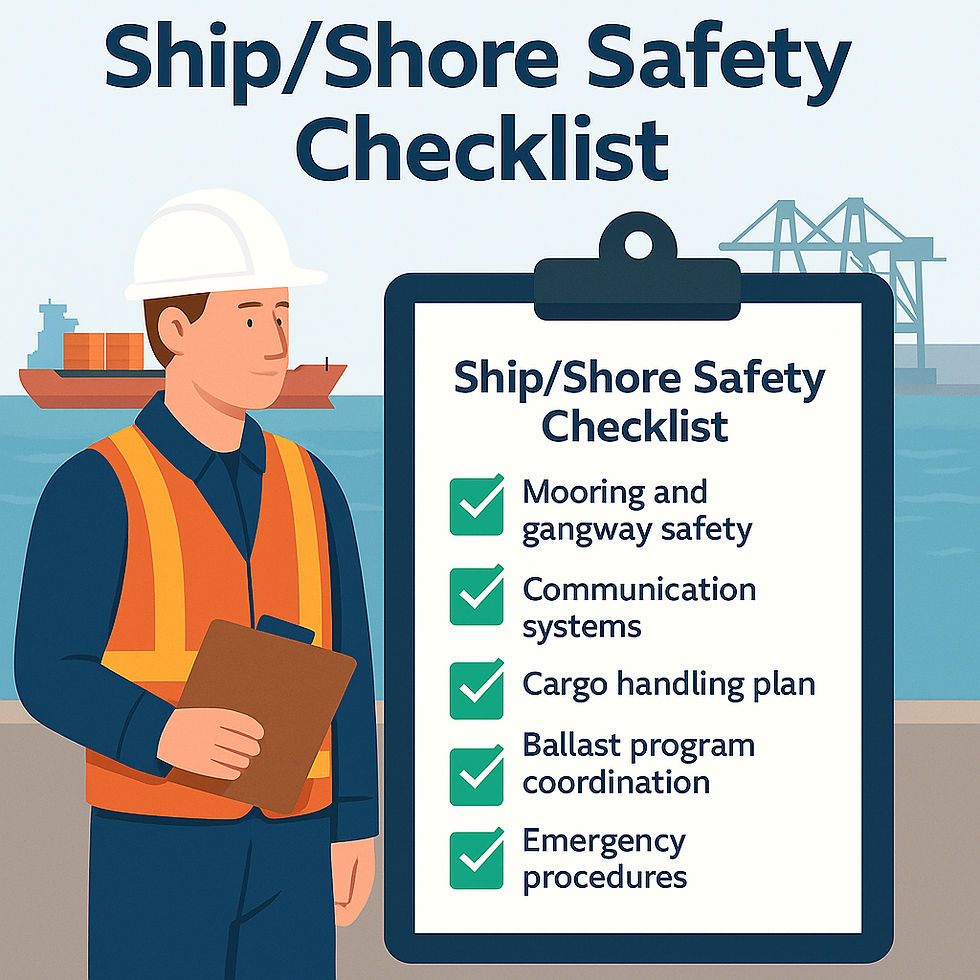Ship/Shore Safety Checklist – Why Every Bulk Carrier Needs It
- Admin

- Oct 4, 2025
- 2 min read

What is the Ship/Shore Safety Checklist?
The SSSCL is completed together by the ship’s representative (Master or Chief Officer) and the terminal representative.
It covers critical areas such as:
Mooring and gangway safety
Communication systems and contact persons
Cargo handling plan and trimming procedures
Ballast program coordination
Dust suppression, fumigation, and enclosed-space safety
Emergency procedures and response readiness
Both parties must agree on each point before signing.
Why is it needed?
Prevents accidents such as spills, dust explosions, and unsafe mooring situations.
Mandatory compliance with IMO, BLU Code, and port/terminal safety requirements.
Proof of readiness — signed copies are evidence that both sides agreed to safe working conditions.
When do we fill it in?
Before starting loading/discharging.
After any interruption (bad weather, stoppages, breakdowns).
Repeatedly during operations in some terminals (reconfirmation every few hours).
Examples from real ports
Hamburg (Germany – Hansaport): A very detailed checklist adapted to local safety rules, including restrictions on gangway placement, automatic grab operation, and even horn-use bans.
Abbot Point (Australia): Includes specific requirements on ballast synchronization, cargo trimming, communication channels, and conveyor tonnage.
Important for seafarers
Not all terminals issue their own checklist. If the terminal does not provide one, the vessel must use its own Ship/Shore Safety Checklist accepted worldwide and fully compliant with IMO BLU Code Appendix 3.
What you should do now
Log in to Master Work Station
Download:
Hamburg (Hansaport) terminal checklist
Abbot Point terminal checklist
Generic ship’s form (for use when terminal has no checklist)
Train your crew to complete it correctly and keep a signed copy on board after every port call.
Final Reminder
The Ship/Shore Safety Checklist is not just “paperwork.” It’s a critical safety tool that protects your crew, your vessel, and the port.
Comments